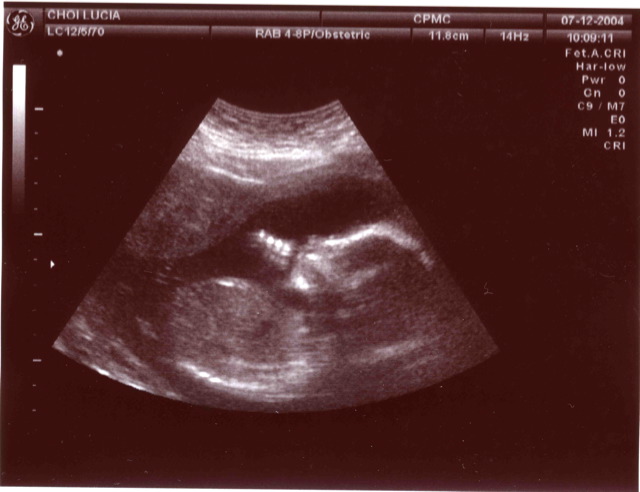Never mind wearing unusual clothes or talking in incomprehensible slang, the feeling that your own child may be 'foreign' starts much younger than their teenage years, starting right back in the womb.  Because a developing fetus is made of cells bearing genes from both Mum and Dad, it should be recognised as a foreign invader by the mother's immune system and destroyed. The fact that is isn't has been a mystery to developmental biologists for many decades. But now new results in the journal Science from Adrian Erlebacher and his team at the New York University School of Medicine have finally revealed how a fetus is protected from this potentially deadly attack. Their findings could not only help to explain what happens when some pregnancies fail, but could even be extended to improving organ transplants or a treating much more undesirable growth, namely cancer.
Because a developing fetus is made of cells bearing genes from both Mum and Dad, it should be recognised as a foreign invader by the mother's immune system and destroyed. The fact that is isn't has been a mystery to developmental biologists for many decades. But now new results in the journal Science from Adrian Erlebacher and his team at the New York University School of Medicine have finally revealed how a fetus is protected from this potentially deadly attack. Their findings could not only help to explain what happens when some pregnancies fail, but could even be extended to improving organ transplants or a treating much more undesirable growth, namely cancer.
Normally, when our body detects something foreign, such as a transplanted organ, it starts an inflammatory reaction around the invader, producing signalling molecules called chemokines. These chemokines attract deadly immune cells called T-cells, which set about attacking and destroying the foreign tissue. This is why it's so important that transplant patients take drugs that suppress their immune system.
To find out why a mother's body doesn't label her baby as foreign, the scientists turned their attention to a structure called the decidua - the specialised 'barrier' tissue that encapsulated both the developing fetus and its placenta, using mice as a model system. They discovered that chemokine genes had been switched off in the decidua, using a kind of chemical 'tagging' known as epigenetic modifications, so killer T-cells weren't recruited there. This immunological 'dead zone' means that the fetus is protected from immune attack as it grows.
At the moment this research has only been done in mice, so the scientists need to confirm whether the same gene silencing is at work in humans. But if it is, there could be big implications for our understanding of why some pregnancies fail, or even why some women give birth prematurely or suffer complications such as pre-eclampsia.
The major problem with cancer is that it starts from our own cells, so it's hard for our immune system to recognise and destroy tumour cells. It may be the case that a similar mechanism that protects a developing fetus from immune attack is also helping cancers to avoid destruction, but obviously this needs to be investigated. The results from this research could also open doors in other areas, including organ transplantation and autoimmune diseases, so it will be very exciting to see where it leads in the future.










Comments
Add a comment